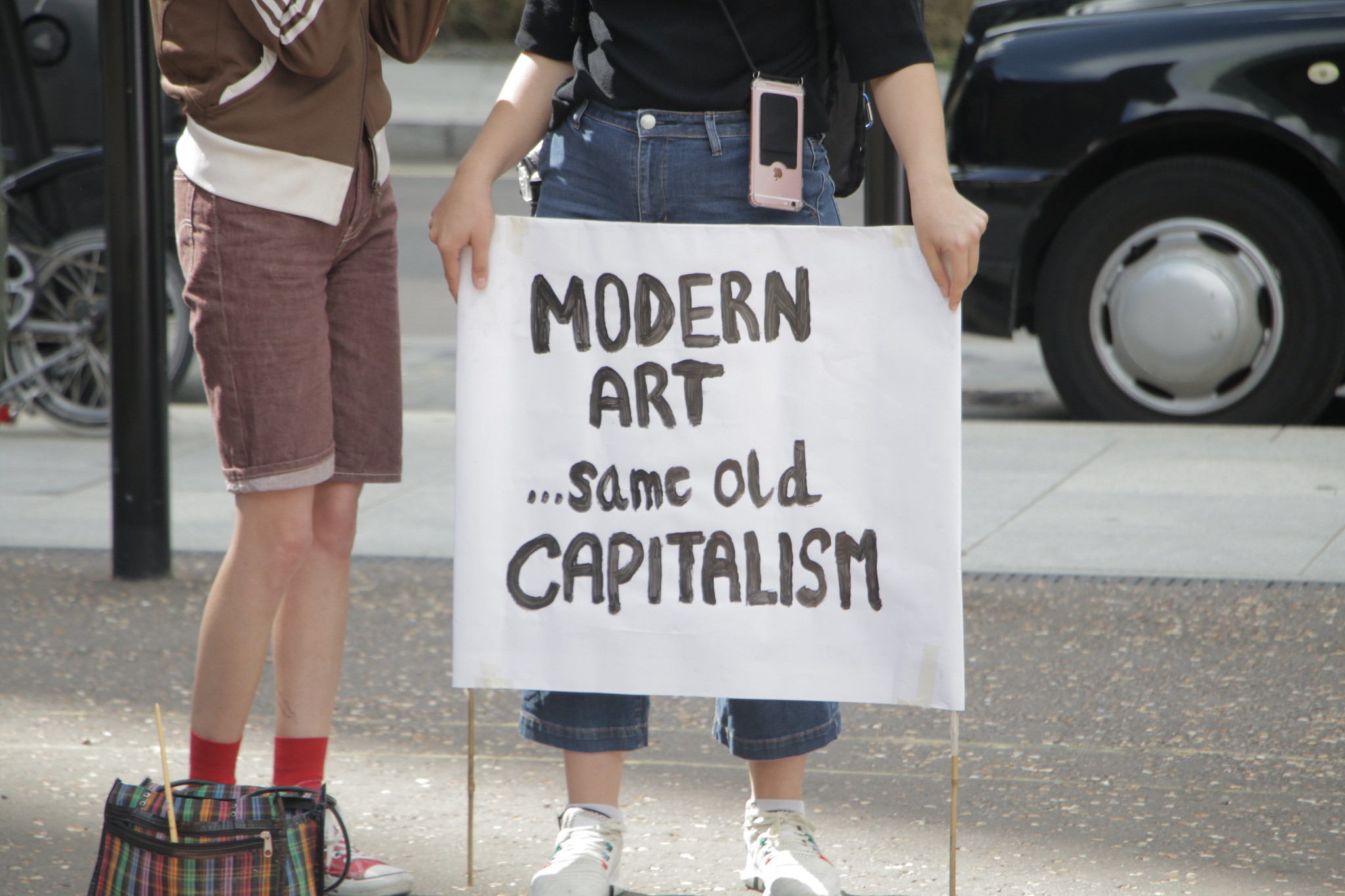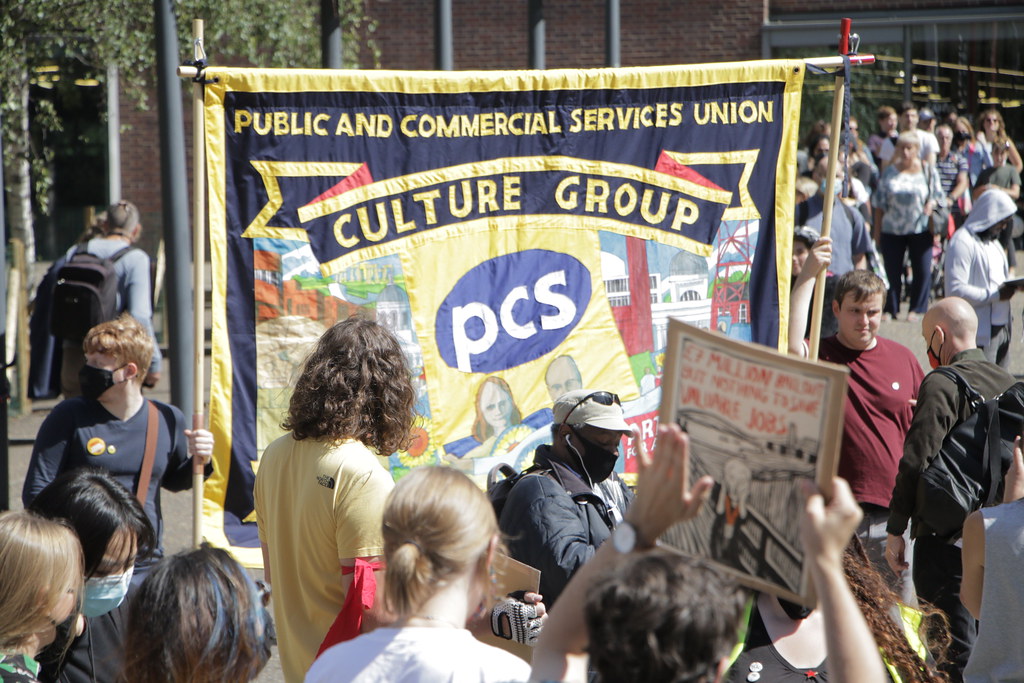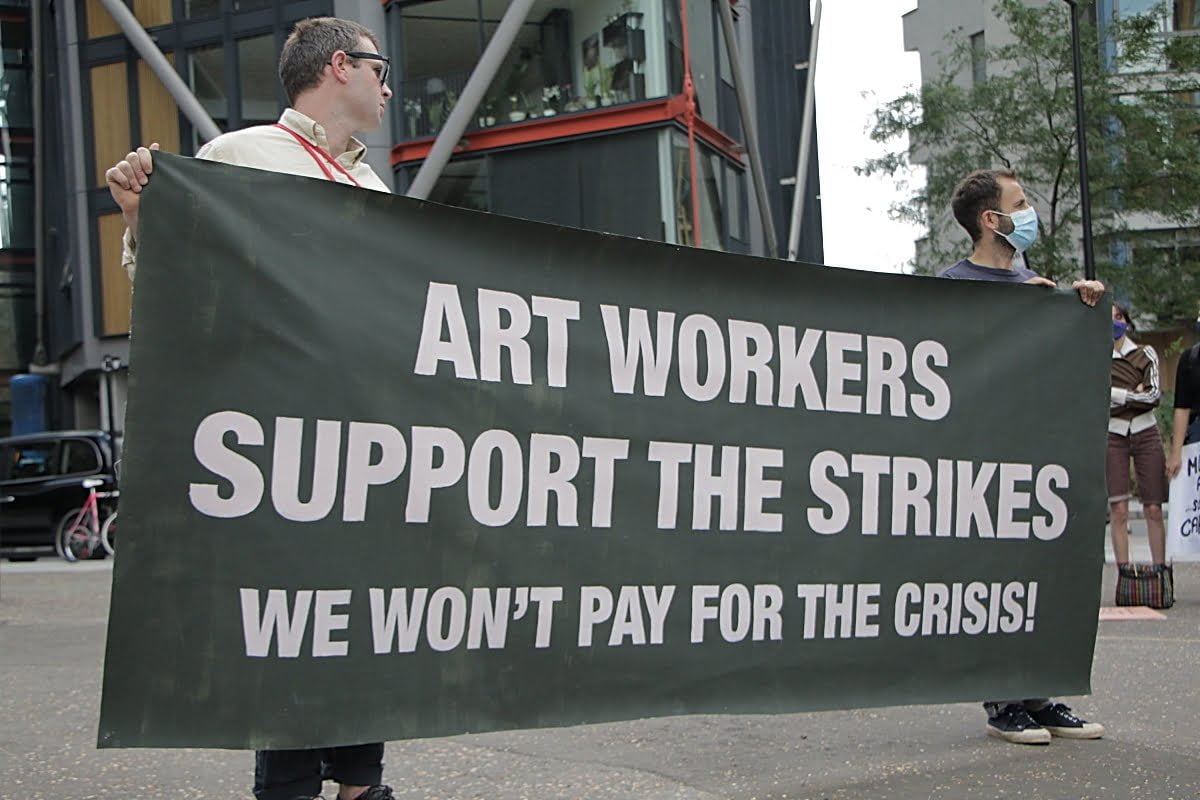The country’s cultural institutions have been hit hard by the coronavirus crisis. Workers at the Tate and Southbank have already mobilised against job losses. Now PCS members at the V&A are set to join the struggle to defend the arts.
The pandemic has already severely impacted the mental health and wellbeing of workers in all sectors. Workers in the arts and culture sector have been particularly affected, as curtains fall on theatres, galleries, and museums across the country.
The V&A museum in London has sought to follow the Tate, Royal Academy, and Southbank Centre (amongst others) by becoming the latest arts institution to announce major redundancies.
The 103 proposed redundancies are to effect the ‘front of house’ staff exclusively. This section of the workforce represents by far the least well-paid and most diverse layer of the museum’s staff.
An announcement of the ‘restructuring’ process was made by deputy director Tim Reeve over Microsoft Teams on 29 September. It came as a bit of a shock: staff had previously been assured by Reeve (in a face-to-face meeting) that the museum was in a secure financial position, following the government’s £1.6 billion bailout.
Furthermore, the V&A had also taken in millions during its blockbuster Dior exhibition, held last year.
Bosses’ hypocrisy
 Reeve has infamously labelled the decision a ‘cruel irony’, acknowledging that it is those workers who have directly brought in visitors (and thus money) who would nevertheless have to bear the brunt of the cuts.
Reeve has infamously labelled the decision a ‘cruel irony’, acknowledging that it is those workers who have directly brought in visitors (and thus money) who would nevertheless have to bear the brunt of the cuts.
When asked if he – or any other executive-level staff – would take a pay-cut, Reeve dismissed the idea. His only counter-argument was that this suggestion is not a ‘viable’ solution to the problem created by COVID.
V&A director Tristram Hunt made a brief appearance during the announcement. But he has since made himself scarce, avoiding questions as much as possible.
It should also be noted that Reeve is estimated to ‘earn’ around £170,000 a year, while Hunt is on about £210,000.
High and dry
On top of this, the museum has refused to take part in the government’s recently announced Job Support Scheme. This means that workers will likely be sacked sometime in November – just in time for Christmas.
This short-term ‘solution’ is supposed to pass as a ‘long-term strategy’. But it has left many workers fearing that they will no longer be able to pay their rent within the coming months.
The bosses have offered voluntary redundancies, but have also said they will conduct one-to-one ‘informal’ meetings with staff to discuss their immediate employment.
One First Class Honours degree, one Masters degree, 12 years of professional experience as a director & assistant director, ten years of experience as a teacher & mentor.
I don’t need to retrain @RishiSunak. I need a gov who recognises our value. https://t.co/ii9Q47X5UC
— Rachel Heyburn :flag-eu: (@Rachel_heyburn) October 6, 2020
Union fightback
 This aggressive approach from the management has meant that the V&A PCS branch has had to mobilise quickly. Numerous discussions are already taking place, in order to outline the union’s response.
This aggressive approach from the management has meant that the V&A PCS branch has had to mobilise quickly. Numerous discussions are already taking place, in order to outline the union’s response.
A ballot has been circulated asking whether members would be happy to move forward with industrial action. The result is largely in favour. It seems likely that a strike will therefore take place soon.
The exact demands of the union have not been fully stated as of yet. But clearly we will oppose all proposed redundancies across the museum.
At the moment, the PCS branch leaders are working to achieve full representation for all workers in the museum. Technically the union only formally represents workers on the older civil service contracts, and not those who have joined the museum after 2016.
Workers in this latter layer are on the much more precarious ‘V&A Enterprise’ contracts, even though most are still fully-fledged members of PCS.
Threat to culture
 Chancellor Rishi Sunak recently remarked that artists and culture sector workers need to ‘adapt’ to different – supposedly more useful – jobs. By this, he clearly means useful to the capitalists; the parasitic profit-seekers.
Chancellor Rishi Sunak recently remarked that artists and culture sector workers need to ‘adapt’ to different – supposedly more useful – jobs. By this, he clearly means useful to the capitalists; the parasitic profit-seekers.
Against the backdrop of these ominous comments, it is vital that the labour movement fights against the Tory government’s attack on the creative industries as a whole.
I see Rishi Sunak’s made his war on people in the Arts into a poster campaign. “Don’t ever dream.” pic.twitter.com/2XNqM2EzN0
— Dawn Foster (@DawnHFoster) October 12, 2020
During the national lockdown, art, music, film and TV became the most important elements of life for many people. The situation would have been frankly unbearable without the consolation offered through these outlets and mediums.
Since people have been able to leave their homes again, museums and galleries have understandably been amongst the most popular places to visit. We therefore need to make it clear that such institutions rely on a highly dedicated and knowledgeable workforce to remain open. A threat to this workforce means a threat to the public’s enjoyment of – and access to – the arts and culture.
The current situation for the V&A is a direct result of Tory cuts to museums, as well as the increased corporatisation of various cultural institutions over the last decade or so.
The labour movement should explain this, and fight both for big business and profit to be kicked out of our museums, and for the establishment of workers’ control over this important industry.






